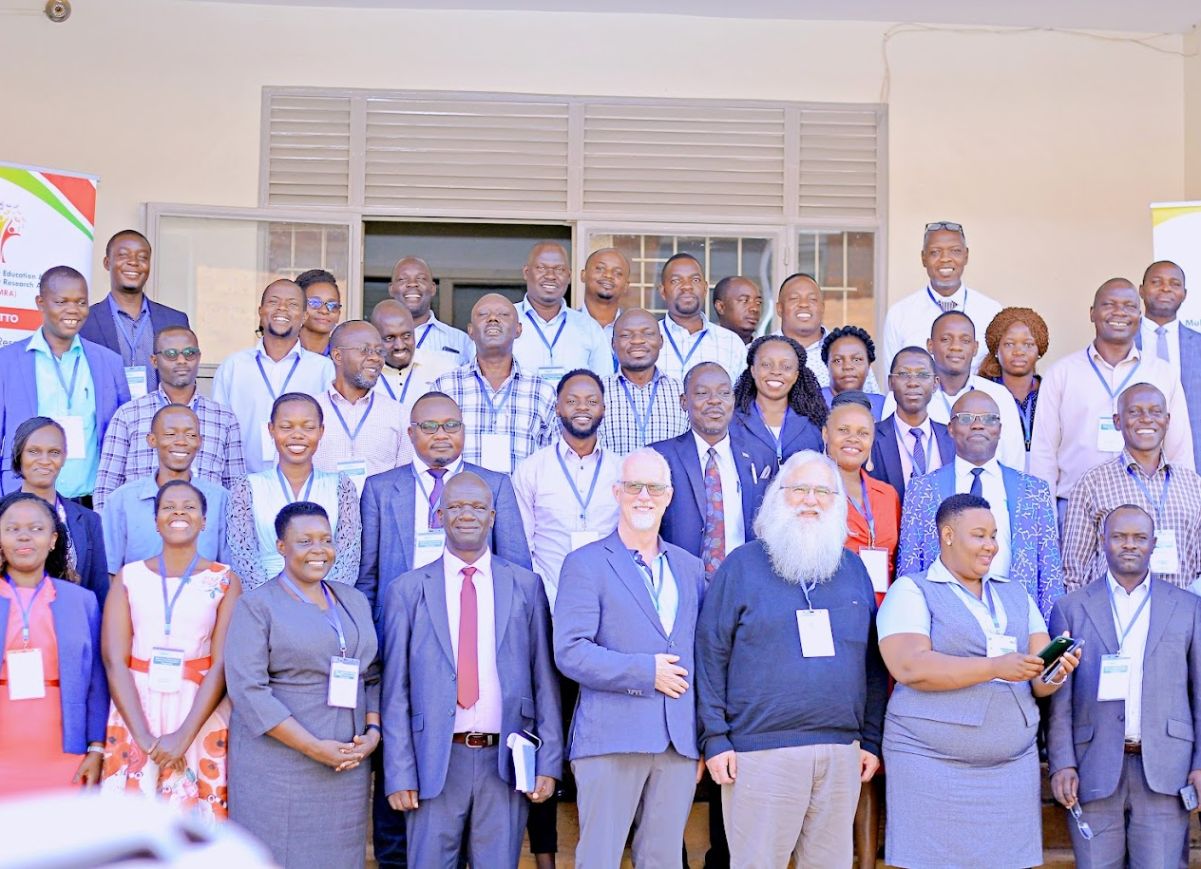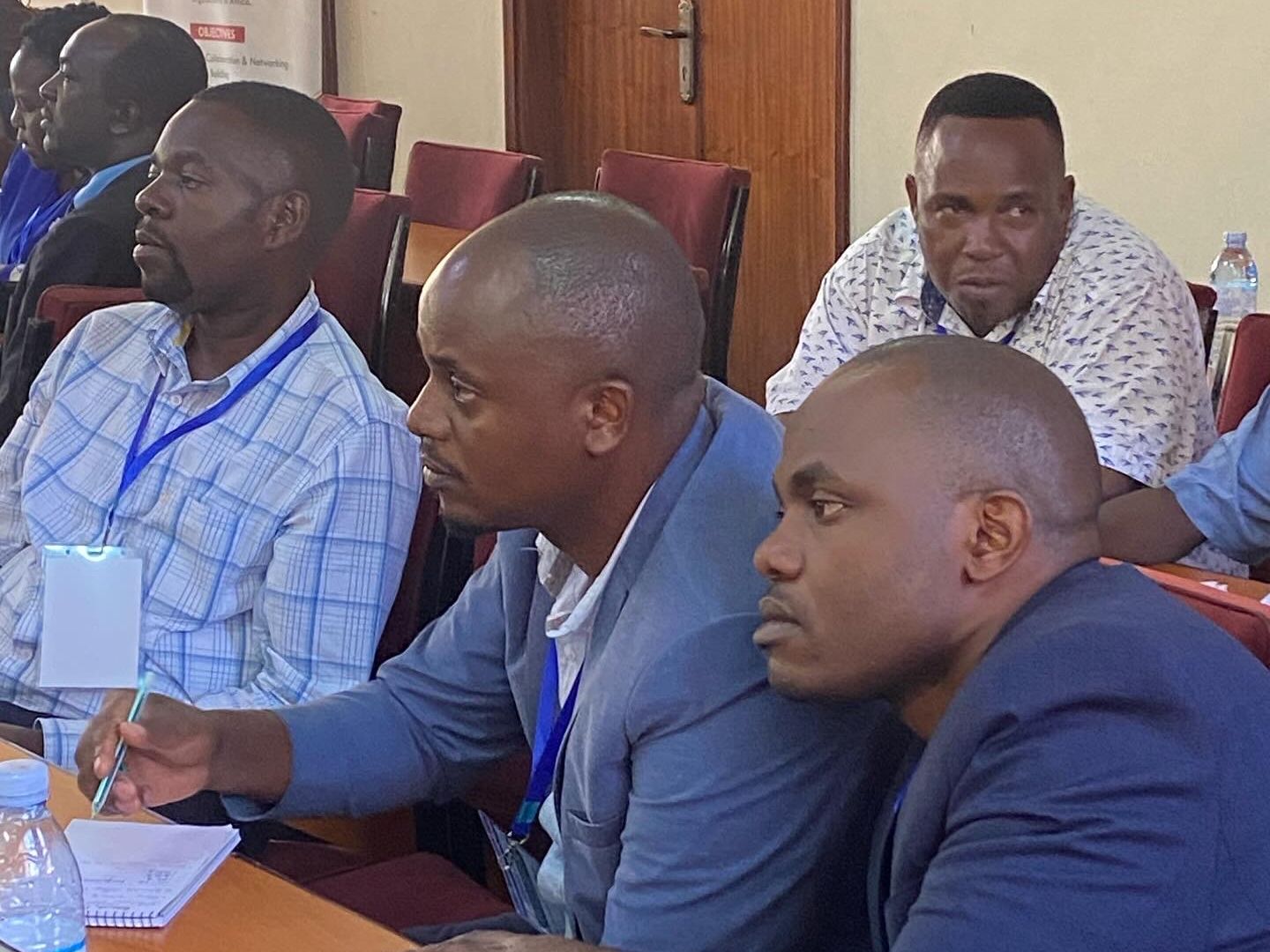Ted Rogers School professor helps to build research capacity in Uganda

When the international development agency Academics Without Borders (external link, opens in new window) (AWB) sent out the call to Canadian universities looking for assistance to build research capacity in Uganda, Ted Rogers School of Management Professor Dave Valliere answered it.
In April, Valliere (Professor, Entrepreneurship & Strategy) and another professor from Carleton University created and ran a Train-the-Trainer workshop for early career researchers in Uganda at Kyambogo University. AWB, along with Network for Education & Multidisciplinary Research Africa (NEMRA (external link, opens in new window) ) and East Africa Scientific Research Network (EASRN (external link, opens in new window) ), organized the five-day workshop.
“In recent years, Toronto Metropolitan University has made big investments in significantly increasing our research capabilities,” says Valliere. “And I've seen the positive impact this higher quality research output has had on the community around us.”
“So when I discovered this opportunity to help Ugandan universities similarly improve their research and increase its impact on the communities around them, I was delighted to be able to make a contribution,” he explains. “I am thankful to AWB for making these new connections possible.”

Pilot program
There were five academics in Kampala, Uganda who were leads on this project from different universities there. Valliere and the other Canadian professor worked with them to come up with a program to train early career researchers on how to do higher quality research, how to be more competitive in applying for international grants, and how to publish in higher quality international journals.
“The approach was basically ‘Train-the-Trainer,’ he explains. “We would put together a number of modules that would cover different aspects of being a successful academic researcher. We would pilot it with an audience, who would then become the trainers themselves back in their home universities.”
The professors started by doing a needs assessment in 2023. They surveyed almost 100 early career researchers around different parts of Uganda looking at what kind of help the researchers thought they needed. They put together 16 modules covering the different topics, and went to Uganda this April to run the pilot program.
“I had done a similar project with AWB in another country a couple of years earlier, and that was very rewarding,” says Valliere. “What made this project particularly attractive was the commitment of the Ugandans that there was a multi-university group there of an informal grassroots researcher network. They were doing a lot of the work on this, and we wanted to do what we could to help them.”
Program success
During the pilot program, approximately 25 trainers attended and actively participated in the sessions. Surprisingly, another roughly 25 people attended who had not been previously identified as future trainers. These included junior faculty members, PhD students, and even Masters students from local universities who had heard about the pilot and had convinced the local partner institutions to let them attend.
“We consider this to be a strong vote of confidence in the program and an indicator of the importance of the need that it is addressing,” says Valliere.
The program is not specific to a discipline, it’s for broad research building capacity. “We designed this program to be very modular, so they can plug and play the modules that they think their audience requires, and we taught them how to tailor it,” Valliere explains.
The feedback that was collected from the participants of the pilot program at the end of each day and the end of the overall program was positive. The program even made national news in Uganda. (external link, opens in new window)
“I think the program was a big success,” Valliere says. “We now have these 25 trainers at around 10 different universities across Uganda who are ready to start doing this on their own.”
